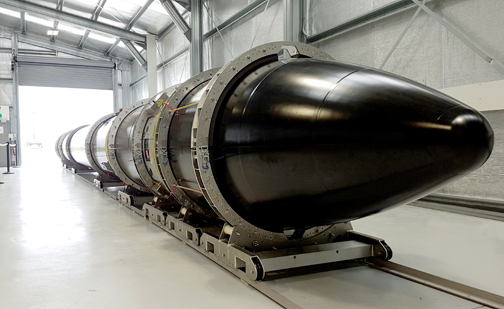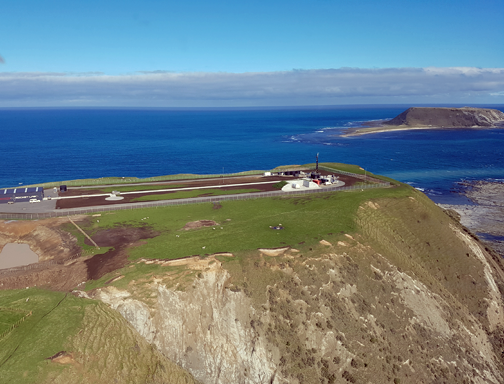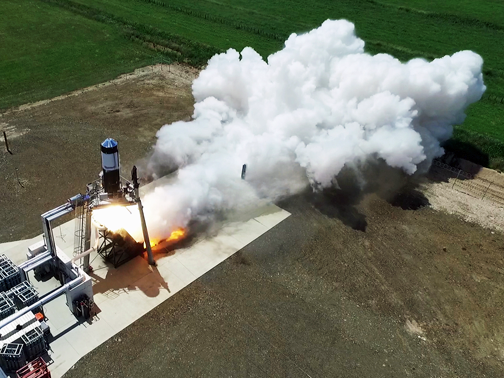
Rocket Lab, a smallsat launch services company, has surmounted their first milestone and has delivered their first Electron rocket to the Rocket Lab Launch Complex 1—this was accomplished late on Tuesday evening and marks the start of the all-important pre-flight checkouts.

Rocket Lab's Electron launch vehicle at the Mahia Peninsula launch site. Photo is courtesy of Rocket Labs.
The rocket was trucked to the Mahia Peninsula from Rocket Lab’s Auckland facility. Over the coming weeks, a series of tests and checkouts will be conducted at the site before the rocket, named It’s a Test, is signed-off to fly. The launch, which will be the first orbital launch attempt from New Zealand, is the first of three planned test launches before Rocket Lab begins providing customers commercial satellite launches.
Rocket Lab will use Electron to launch satellites used to house imaging and communications technologies. Rocket Lab’s customers use these satellites to provide services including optimized crop monitoring, improved weather reporting, Internet from space, natural disaster prediction, up-to-date maritime data and search and rescue services. Electron is an entirely carbon-composite vehicle that uses Rocket Lab’s 3D-printed Rutherford engines as the main propulsion system. Electron is capable of delivering payloads of up to 150 kg to a 500 km Sun-Synchronous Orbit (SSO)—the target range for the high growth constellation-satellite market. Customers signed to fly on Electron include NASA, Planet, Spire and Moon Express.

The Rocket Lab's Mahia Peninsula launch site in New Zealand.
Photo is courtesy of Rocket Lab.
Rocket Lab’s Launch Complex 1 is located on the tip of the Mahia Peninsula, New Zealand. The complex is the first orbital launch site in New Zealand and the first privately operated orbital launch site globally. The remote location of Launch Complex 1—particularly its low volume of air and marine traffic—is a key factor in enabling unprecedented access to space. The geographic position of the site means it is possible to access a large range of orbital azimuths—satellites launch from Mahia can be delivered to a wide range of inclinations to provide services across many areas around the world.
Peter Beck, Rocket Lab's CEO, reported that this event is an important milestone for the team and for the space industry. In past, it has been countries that go to space, not companies. Through the innovative use of new technologies, the Rocket Lab team has created a launch vehicle designed for manufacture at an unprecedented scale—the ultimate goal is to change the ability to access space.

Rocket Lab's Electron stage 1 test.
Photo is courtesy of Rocket Lab.
Since commencing this project three years ago, the team has accomplished an incredible amount—the vehicle has gone through rigorous qualification and acceptance testing, Rocket Lab Launch Complex 1 has been completed and major tracking infrastructure has been installed in remote locations.

